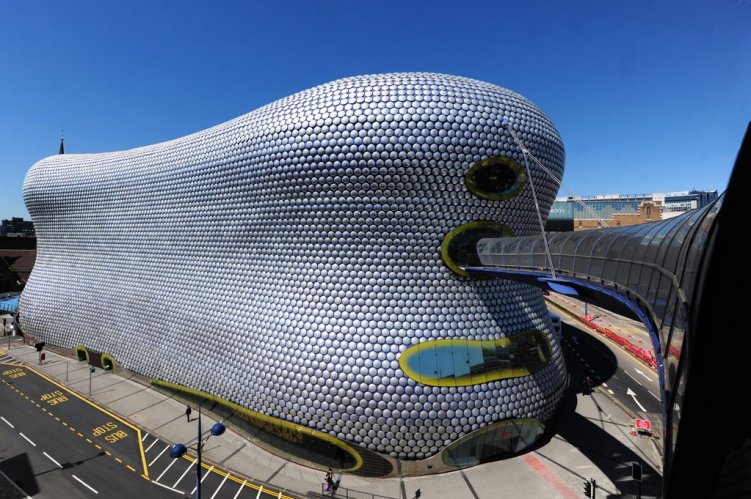Best University for Architecture in UK

What are the top universities in the UK? If you want to study in England, or Scotland, Wales or Northern Ireland, which universities should you consider?
This UK university league table reveals the 78 best UK universities and colleges, according to the trusted Times Higher Education World University Rankings 2015-2016.
The University of Oxford and the University of Cambridge take the top two spots in this ranking of best British universities, while some of the best universities in London complete the top five.
Resources: choosing a university
- Best UK universities chosen by major employers
- Find top universities in Canada
- Explore the top universities in Australia
- See the best universities in South America
Three universities in Scotland appear in the top 15: the University of Edinburgh, the University of Glasgow and the University of St Andrews, while the best university in Wales is Cardiff University, ranked at position 20.
For students looking to study in Northern Ireland, the best university in the ranking is Queen’s University Belfast, and the second (and only other Irish university included in the ranking) is Ulster University.
Of the 78 top universities in the UK, 15 are universities in London, including well-known institutions such as Imperial College London and University College London, and modern universities such as the University of Westminster and the University of Greenwich.
Resources: applying to a UK university
- Guide to visas and funding to study in the UK
- Apply to UK universities through Ucas as an international student
- Results of the UK Student Experience Survey 2016
Top 5 universities in the UK
Scroll down to view the full table of the best universities in the UK
One of the most prestigious universities in the world, and one of the oldest, the University of Oxford attracts top scholars and students to its 44 colleges and halls. Entry standards are high and admissions are competitive; in 2015 there were 18, 000 undergraduate applications for only 3, 200 places, and 24, 000 postgraduate applications for 5, 200 places.
As is common in the UK, the university offers a number of joint honours programmes that combine two subjects at an undergraduate level. In total, there are 250 different undergraduate degree combinations. The combination of politics, philosophy and economics is a particularly prestigious degree course on offer, although it is not now unique to the University of Oxford.
Undergraduates and postgraduates belong to a college and often live in the college building or college-owned accommodation. Social life and recreational activities – such as rowing, cultural events and shared-interest societies – also revolve around the college. Undergraduate students are taught almost exclusively by tutors in their college, while postgraduate students are primarily served academically by a centralised faculty.
There are more than 100 libraries in Oxford, the most famous of which is the Bodleian, built in 1602. The small town also boasts a number of museums, including the Oxford University Museum of Natural History, which houses the remains of a dodo, and the Museum of the History of Science, which displays a blackboard used by Albert Einstein.
More than 30 world leaders, 26 British prime ministers, 26 Nobel prizewinners and more than 120 Olympic medallists were educated at Oxford. Stephen Hawking, Hugh Grant and Indira Ghandi are among the most famous alumni.
Within six months of graduating from the university, 95 per cent of Oxford students are in employment or further study.
Like Oxford, the University of Cambridge is fundamentally collegiate, and is also one of the oldest and most prestigious universities in the world. The small town is based just an hour’s drive away from London.
The university is home to more than 18, 000 students and 9, 000 staff members. There are 31 colleges, some of which date back to the 13th century, and more than 100 academic departments.
Cambridge is particularly renowned for excellence in mathematics, and has educated some of the most famous British scientists throughout history. In total there have been 92 Nobel prizes awarded to academics affiliated to the university, and Cambridge-affiliated mathematicians have won a number of Fields Medals.
Getting a place at the university as an undergraduate is extremely competitive; the acceptance rate is less than 25 per cent and more than half of rejected candidates go on to receive A grades for all their final school exams.
Undergraduate students are taught in lectures and supervisions – intimate tutorials with only a couple of other students at most. The workload is heavy but terms are shorter than at many other universities in the UK.
Cambridge libraries are home to extensive collections of medieval manuscripts, and the university museums display collections of archaeological artefacts and zoological specimens.
Notable graduates of Cambridge include actors, politicians, royals, sportsmen and sportswomen and cultural figures.
Imperial College London is consistently ranked as one of the best universities in the world for science, technology, engineering, medicine and business.
It was formed in 1907 from a merger of three colleges in London, and now has 14, 700 students and 8, 000 staff. The student cohort is extremely international in composition, and currently comprises over 125 nationalities.








